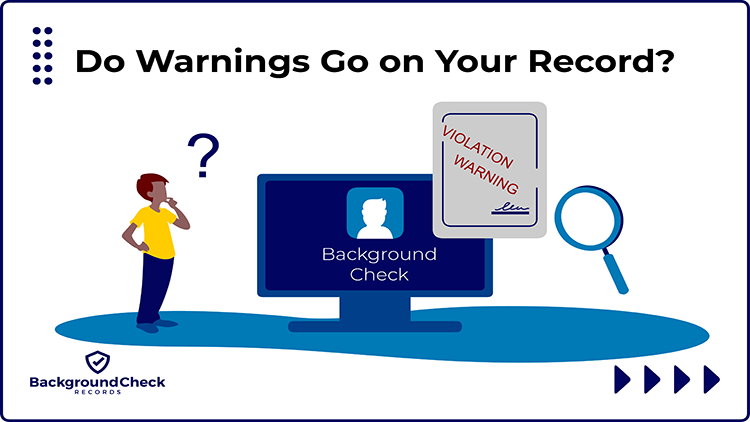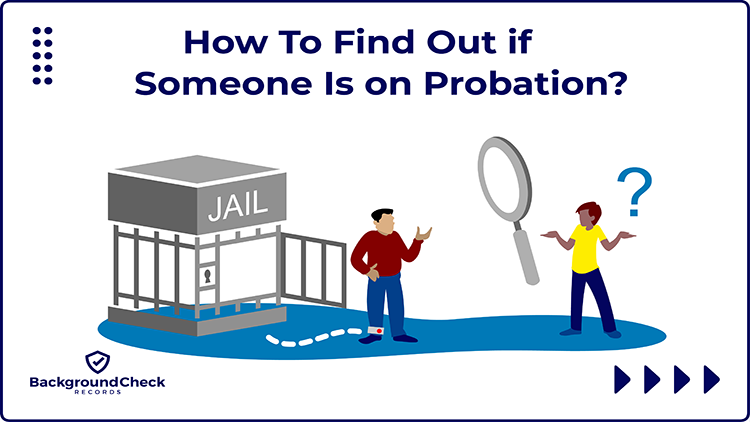We use cookies to ensure that we give you the best experience on our website. If you continue to use this site we will assume that you are happy with it.
Does Probation Show Up on Background Check? (Search Now)
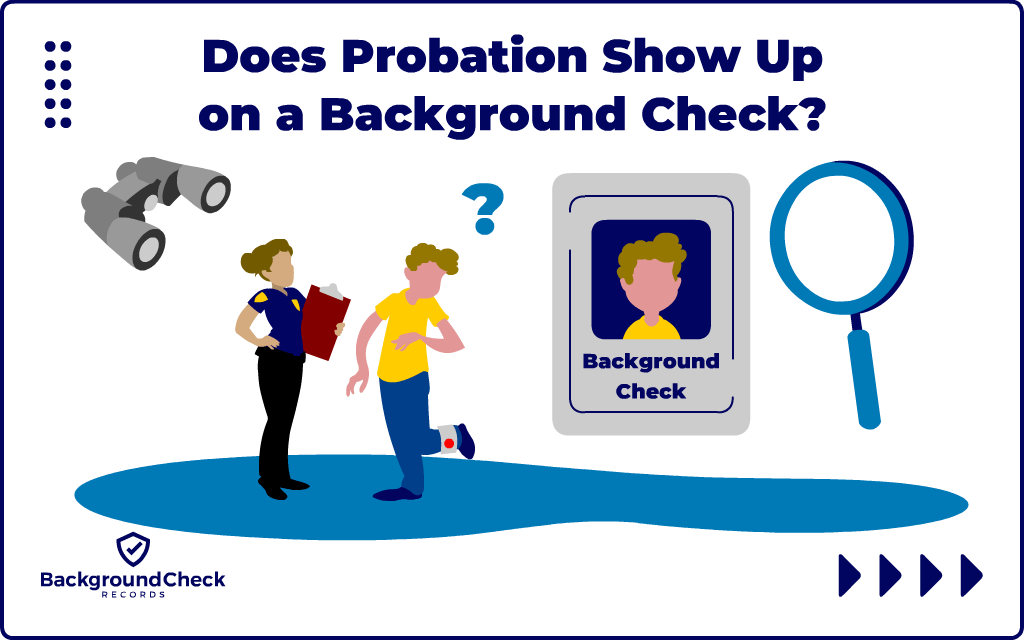
Table of Contents
Inquiring about the visibility of probation on a background check is common, especially given that the United States Department of Justice reported 3,890,400 adults were under probation or parole, often called community supervision.1
With 1 in every 66 Americans on some form of probation or parole, it’s practical to wonder how this status can affect employability, housing, or licensure.
But don’t worry, individuals on federal or state-issued probation can search now to see if their supervision status shows up on a background check and take steps to mitigate any negative effects of being on probation.
Understanding Types of Probations When it Comes to Background Checks
There are a few types of probations but generally, there’s either federal probation commonly known as parole, and there’s state or local probation which is what’s normally referred to as probation.
This is important to understand because federal parole is handled entirely different when it comes to background checks since it’s reserved for more serious offenses like felonies whereas state and local probation is for lesser offenses.
Therefore, the type of probation one is on makes a huge difference as to whether or not it’s shown on a background check and the reasons for it showing.
Does State Issued Probation or Local Probation Show Up on Background Checks?
As mentioned, state courts can impose probation on individuals convicted of either felonies or misdemeanors and state probation can show up on a background check because it is tied to the criminal convictions, but the wording may not reveal what type of punishment the individual received.
State law violations are considered public records, meaning anyone can perform a background check and potentially discover this information. If someone is on community supervision (probation), they can search now via a personal background check to see if their state or local probation appears.
When Do Misdemeanors Fall Off Your Record?
How long misdemeanors stay on a person’s record depends on a number of factors. Each state has laws that dictate how long non-convictions appear, dismissed or dropped misdemeanors, deferred prosecutions, and convictions; however, most states do not have automatic relief built codified.
This automatic relief is usually for first offenders (someone who has never been convicted before), underage drinking charges, or marijuana offenses that are no longer considered criminal offenses.
This means that individuals must petition the court to have a misdemeanor conviction that resulted in probation expunged or sealed to remove it from public scrutiny.
Removing misdemeanor convictions that resulted in probation can help an individual secure gainful employment or find suitable housing, regardless of the type of probation the individual was sentenced to.
If you were on state or local probation, then skip the section below to learn if unsupervised, supervised, or juvenile probation comes up on background checks.
Visibility of Probation on Background Checks (Federal Probation or Parole for Felonies)
Violations of federal laws can lead to either incarceration in a federal prison facility or can result in the individual being placed on federal probation. And a federal judge uses sentencing guidelines to determine whether or not a person is placed in custody or put on probation.2
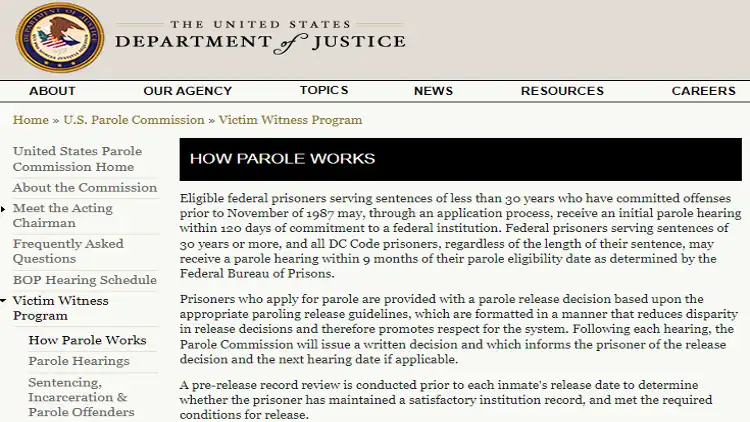
Probation as part of sentencing can appear in court records making them public records and therefore, federal probation or parole may show up on a background check.
Parole is technically only eligible to those federal inmates serving sentences for convictions prior to 1987, meaning recently convicted federal offenders either have prison or community supervision.3 When granted, parole becomes part of the court recording meaning it can show up on a background check.
How Long Do Felonies Stay on Your Record?
It’s important to first determine if it is a felony charge or arrest, or if the record is for a felony conviction. Charges and arrests have the potential to end with a non-conviction and convictions mean a person was found guilty of the offense (or a lesser one when a plea bargain has been made).
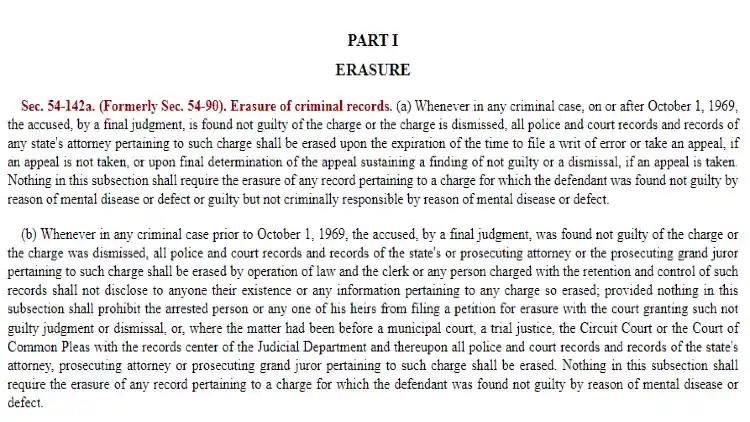
Felony records typically cannot be removed from a person’s record making them permanent. However, depending on state laws, some felonies can be expunged under certain conditions.
The table below lists the statute regarding expunging or sealing felony convictions. These convictions may have resulted in either supervised or unsupervised probation and may show up on a background check if they are not sealed or expunged.
| State | Felony Expunging or Sealing Statutes | Allows Felony Records to be Sealed or Expunged |
| Alabama | 15-27-2(c) | Charge dismissed after successful completion of the court-ordered program. |
| Alaska | Alaska has no statute allowing felony records to be sealed or expunged. | |
| Arizona | 13-911 | After all, sentencing has been completed and a waiting period has passed (5 years for Class 4,5,6 felonies, 10 years for Class 2,3 felonies) |
| California | 1203.4 | Allows certain felonies to be reopened and dismissed allowing them to be expunged. |
| Colorado | 24-72-706 | Sealing of felony records when all conditions of sentencing have been met and following a waiting period of 1-5 years with no other convictions. |
| Connecticut | Chapter 961a | Can petition the court for expungement 5 years after disposition date. |
| Delaware | Chapter 43 | An individual can petition the court to expunge a felony 7 years after the date of disposition or release from incarceration. |
| Florida | Florida has no statute allowing felony records to be sealed or expunged. | |
| Georgia | 35-3-37(j) | Only applies to pardoned felony convictions |
| Hawaii | Hawaii has no statute allowing felony records to be sealed or expunged. | |
| Idaho | 19-2604(3) | Felonies reduced to misdemeanors after 5 years with no additional criminal convictions |
| Illinois | 20 ILCS 2630/5.2 | Seals most felonies after 3-year waiting period |
| Indiana | 35-38-9 | Class D and Level 6 felonies can be expunged after an 8-year waiting period. |
| Iowa | Iowa has no statute allowing felony records to be sealed or expunged. | |
| Kansas | 21-6614 | After a waiting period of 3-5 years, a person can petition to have a felony record sealed or expunged |
| Kentucky | 431.703 | 5 years after completion of sentence for specific Class D felonies, also payment of up to $300 in fees. |
| Louisiana | 978A(2) | Conviction set aside, 10 years have passed since the completion of sentencing, no further convictions, no pending charges. |
| Maine | Iowa has no statute allowing felony records to be sealed or expunged. | |
| Maryland | 10-110 | Non-violent felonies are eligible for expungement after a person convicted is 10-15 years without another charge or conviction. |
| Massachusetts | Chapter 258D | 10 years with no other convictions |
| Michigan | 8.119(I) | Before April 2021, first-time felons with 2 or fewer misdemeanor convictions, after April 2021, 3 or fewer felonies can petition the court after a waiting period of 7-10 years following completion of sentencing. |
| Minnesota | 609A.02 subsection 3 | Non-violent felonies eligible for expungement in 2-5 years |
| Mississippi | 99-19-71 | First-time felonies for non-violent offenses after a 3-year waiting period. |
| Missouri | 610.14 | Most felonies after a 3 year waiting period with no additional convictions. |
| Montana | Montana has no statute allowing felony records to be sealed or expunged. | |
| Nebraska | Nebraska has no statute allowing felony records to be sealed or expunged. | |
| Nevada | 179-245 | After a 2-10 year waiting period with no further convictions |
| New Hampshire | 651:5 | After a 1-10 year waiting period depending on rehabilitation and public interest |
| New Jersey | 2C:52-2 | A person can only expunge one felony conviction and cannot have any subsequent convictions. Multiple felonies can be considered for expungement if they are all on the same judgment for conviction (in other words, all the felonies are combined into one sentence) |
| New Mexico | 29-3A-5 | After 2-10 years, payment of all fines and fees and no additional convictions |
| New York | 160.59 | Sealing of most felonies after a 10-year waiting period for one felony, or for a drug-related felony after successful completion of a drug diversion program. |
| North Carolina | 15A-145.5 | Up to 3 felonies can be expunged after a 20-year waiting period, 1 felony after a 10-year waiting period, and no additional convictions |
| North Dakota | 12.1-32-02(9) | Felonies can be sealed following filing a petition and a 3-5 year conviction-free waiting period. |
| Ohio | 2953.31 | Sealing of less serious felonies after a 1-3 year conviction-free waiting period. |
| Oklahoma | Chapter 22 18(A)(12), (13) | One non-violent felony after a 5 year waiting period with no other convictions. |
| Oregon | 137.225 | Certain Class B felonies, and Class C felonies after a 20-year waiting period with no convictions |
| Pennsylvania | Pennsylvania has no statute allowing felony records to be sealed or expunged. | |
| Rhode Island | 12-1.3-1 | 5-10 years after completion of sentencing for non-violence felonies. |
| South Carolina | 22-5-920 | Applies to youth offenders (17-25 years old) placed on probation for minor felonies |
| South Dakota | South Carolina has no statute allowing felony records to be sealed or expunged. | |
| Tennessee | 40-32-101(g), (k) | Non-violent/less serious felonies 5-10 years after discharge from court sanctions and no more than two convictions (only one of which can be a felony) |
| Texas | Texas has no statute allowing felony records to be sealed or expunged. | |
| Utah | 77-40-101 | Non-violent felonies after a 3-10 year waiting period |
| Vermont | 13, §§ 7601 | 3 minor felonies after 10 years with no felony convictions |
| Virginia | 19.2-392.6 | Certain felonies can be sealed pursuant to a petition to the court |
| Washington | 9.94A.640 | Certain felonies can be annulled after a 3-10 year waiting period with no further convictions |
| West Virginia | 61-11-26 | Non-violent felonies after a waiting period ranging from 1-5 years |
| Wisconsin | 973.015 | Applies to youthful offenders (under the age of 25) |
| Wyoming | 7-13-1501, 1502 | Less serious felonies 10 years after sentencing with no other subsequent convictions |
*Note: All states have exceptions to the felonies that can be sealed or expunged. Violent offenses, sex offenses, or felony domestic violence offenses are typically not eligible for expunction or sealing.
Unless felonies are expunged or sealed. by the courts, these criminal statute violations remain on a person’s criminal record indefinitely.
Unfortunately for those charged or convicted on the federal level, the federal government does not have a way to expunge any federal felonies with the exception of a very small, specific set of drug-related offenses.
The criteria for expunging those cases include the following stipulations:
- The conviction was for a charge as outlined in the Federal First Offender Act,
- Is a first-time offender,
- Was less than 21 years of age at the time of the offense,
- Successfully completes a one-year probationary period, and
- Convicted offenders can apply for expungement.
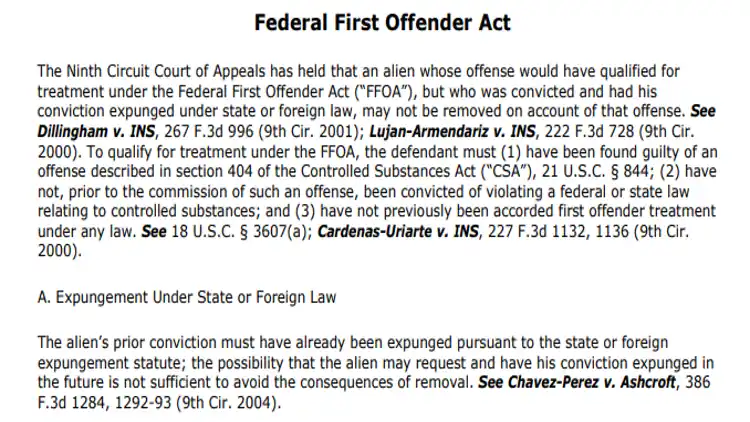
This clears the charge and conviction from the public record; however, the non-public record remains. A non-public record is one that can be accessed by law enforcement or court personnel or pursuant to a judge’s order releasing the information to a non-governmental agency.4
Therefore, whether probation appears on a background check depends on various factors. Typically, felony convictions are the primary reason someone may be placed on probation, and unless the record is expunged or sealed, both the conviction and probation status can be visible on a background check.
Knowing how long felonies stay on a record allows the individual to plan for what may show up on a screening regarding federal community supervision. State community supervision works in much the same way as federal probation, but there may be state laws that limit what does and does not appear on a public record.
Unsupervised or Supervised Probation: Are Both Shown on Criminal Records or Background Checks?
Outside of local, state, or federal probation, there are two other distinct types of probation a person can be sentenced to if convicted of a crime – unsupervised and supervised probation.
The two share similar characteristics but there is one major difference since both are linked to a criminal conviction, however, they can and do show up on criminal records and background checks.
Unsupervised Probation (Background Check Visibility With Light Probation Sentencing)
Unsupervised probation is when a judge orders a person to complete certain penalties during a set amount of time and while it’s not as intense, it still shows up on records and background checks.
Some penalties might entail where the judge orders someone to complete 100 hours of community service within a 12-month time frame, pay fines and court costs, and not get any additional criminal charges but does not order that person to check in with a probation officer.
The person will make payments through the court, and community service will be completed with a court-recognized program to track hours, but the person does not have to “check in” with a court official on a regular basis.
Supervised Probation
As the name implies, supervised probation means the individual has a probation officer they must meet with on a regularly scheduled basis and as with unsupervised probation, it’ll still come up on public records and background checks.
Sentencing conditions can be the same as those for unsupervised with the added condition of a “check-in.” Individuals placed on supervised probation also have to pay probation fees as part of their overall court monetary obligations.
Deferred Prosecutions and Second Chance Probation
Sometimes called probation before judgment or second chance probation, supervised or unsupervised probation can be used in deferred prosecutions. A deferred prosecution is an agreement the prosecutor makes with the defense to delay a formal hearing under the conditions that the individual completes a court-ordered program such as community service or drug treatment.
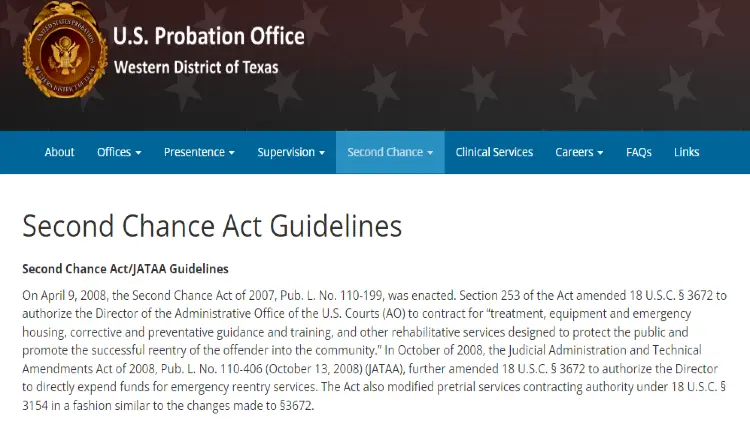
Successful completion of the deferred prosecution can result in charges being dismissed, and it will either be sealed from public view (in states with clean slate laws), or it will appear as a dismissed charge on a record check.
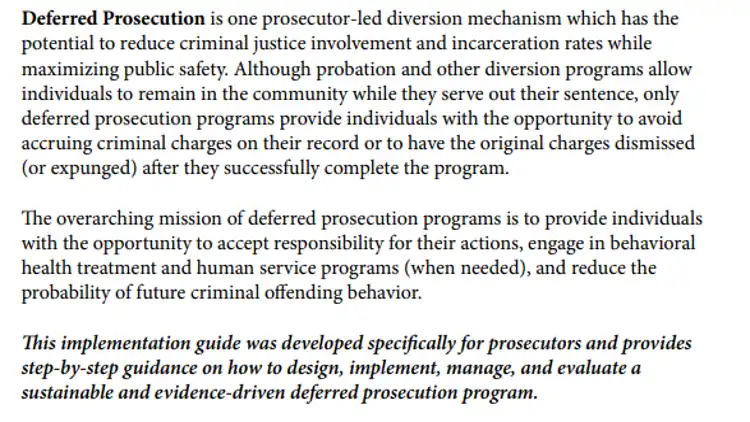
Juvenile Probation
According to the Office of Juvenile Justice and Delinquency Prevention 139,000 juveniles were placed on probation in 2018.5 Juvenile records are generally considered non-public records across the county, so juvenile probation is unlikely to show up on any type of background check.
Individuals can finish the entire term of probation, or it can be terminated early or dismissed by a judge if certain milestones are met, and this can impact what information shows up on a background check.
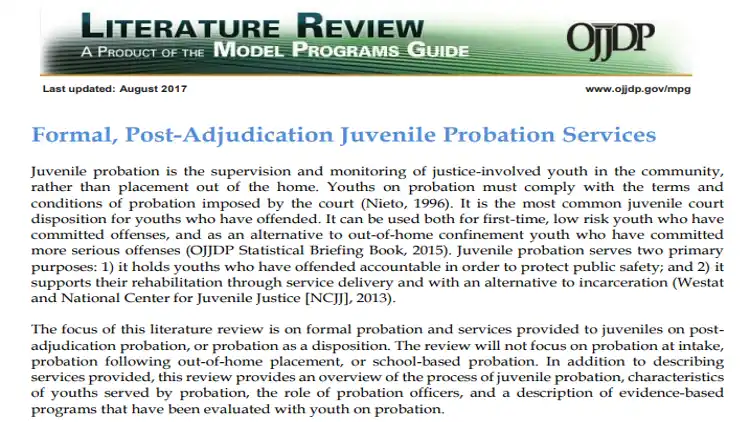
Whether probation appears on a background check depends on the type of check performed, even if the probation conditions have been completed or the person has been discharged early from supervision.
Complete or Dismissed Probation: Does it Show Up on a Background Check? Until When?
Probation is typically a set amount of time, from six months to several years depending on the level of crime the person was convicted of violating, but there are times probation can be terminated early or “dismissed.”
Complete probation simply means the person fulfilled all the requirements of probation and the timeframe for probation has expired without further court action.
Dismissed probation is another term for early termination of probation. There are two ways probation can be dismissed or early terminated. First, an individual can complete other conditions of probation such as payment of fines, community service, and restitution early and petition the court to release them from probation.
With the second circumstance, probation can be dismissed due to a probation violation. The person’s probation can be terminated and dismissed and the individual is placed in jail or prison to complete the sentencing.
As with other forms of probation, unless state laws allow for charges to be removed or sealed automatically or pursuant to a court hearing on expungement or sealing, the charges and sentencing information will remain on a person’s criminal or court record indefinitely and this means it’ll also show up on a background check.
How Long Will Probation Stay on a Criminal Background Check?
The amount of time probation will stay on a person’s criminal record or background check is determined by state laws. Some states strictly limit how far back an employer or landlord can check a person’s criminal record. Other states have no restrictions allowing individuals to look as far back as they need to regarding someone’s criminal past.
Most states do not have legislation limiting the amount of time a person can review or “look back” regarding an individual’s criminal record. There are currently thirteen states that restrict how far back a person can go when searching someone’s criminal history. The table below details the laws in these states and in turn is an indication of how long probation will show up on a background check per state.
| Criminal Record Check Lookback Legislation by State | ||
| State | Statute | Brief Description of Lookback Restrictions |
| California | 432.7 | 7 years for misdemeanors
10 years for felonies |
| Colorado | 12-14.3-015.3 | 7 years unless the annual salary is $75000 or more |
| Hawaii | 378-1 | 5 years for misdemeanors
7 years for felonies |
| Kansas | 22-4701 | 7 years unless a minimum annual salary threshold is met or exceeded |
| Maryland | 14-1203 | 7 years unless the salary is $20,000 annually or more |
| Massachusetts | 93-52 | 7 years |
| Montana | 31-3-112 | 7 years |
| Nevada | 598C.150-2 | 7 years |
| New Hampshire | HRS 359-B:5 | 7 years |
| New Mexico | 56-3-6 | 7 years after release from parole or upon learning a pardon has been granted |
| New York | 380-j | 7 years |
| Texas | 20.05 | 7 years |
| Washington | 19.182.040 | 7 years |
In addition to the criminal record look-back period, an understanding of the types of background checks that can show probation can help a candidate understand what may affect job or housing prospects.
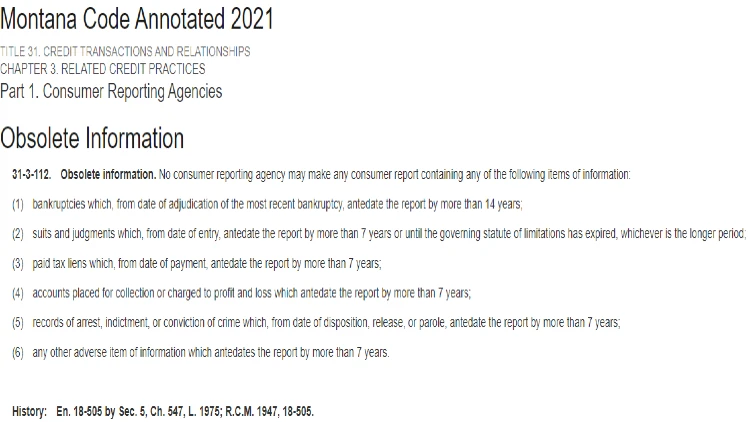
What Type of Background Checks Show Probation?
Whether probation appears on a background check varies. Different types of background checks may or may not include probation records. The level of detail in each type of background check depends on the person conducting it, their thoroughness in reviewing the candidate’s history, and the state where the check is conducted.
Personal Background Check
Anyone can run a background check on themselves or a friend, family member or acquaintance for personal reasons. These personal background checks can reveal if someone is currently on probation or has been on probation in the past.
Pre-Employment Screening
Pre-employment screenings can and do show criminal history except for information prohibited by state laws. As discussed earlier, some states have limited look-back periods, and others limit what can be reported based on expungements or sealing of records. Pre-employment screenings can be either Level 1 or Level 2 background checks.
Level 1 Background Check
A level 1 background check is usually a name and social security or date of birth search. This type of check has the potential to show probation on the record, but it may also not reveal details of criminal history because it is not a deep dive.
Level 2 Background Checks
A level 2 background check usually involves fingerprinting or other identifiers and is more likely to return a “hit” on probation records, meaning this type of check is more likely to reveal someone is on probation than not.
Fingerprinting in and of itself may not reveal a person is on probation unless the probation is due to a conviction while working in a certain profession such as healthcare, childcare, or public safety.
Firearms Permit/Concealed Carry Permit
If someone is purchasing a firearm or seeking a concealed carry permit, the required background check can reveal if a person is on probation. This is especially important information if the probation is for a domestic violence conviction, violent crime, or felony which can prevent someone from purchasing a firearm. Not all crimes or probation are automatic disqualifiers for a handgun permit.
The Brady Bill (Brady Handgun Violence Prevention Act) outlines what firearms retailers must do to lawfully sell a firearm to an individual. This includes the requisite background checks to make sure the weapons are not going to dangerous individuals.6
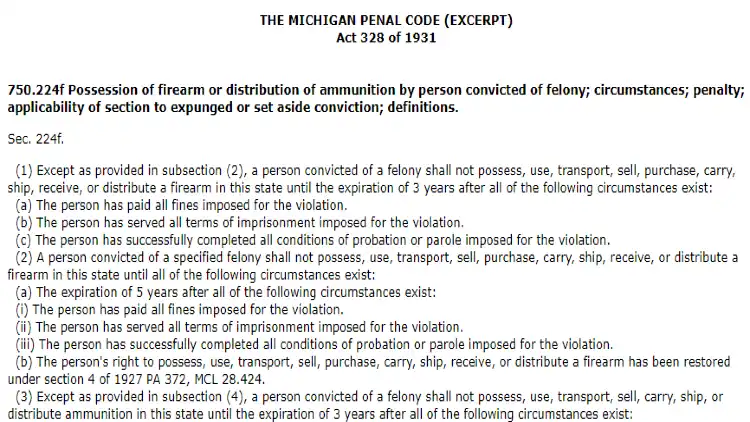
Since the passage of the Brady Bill other federal provisions regarding weapons, and sales have been passed, and many states have their own gun control laws that outline what must be revealed in a background check to purchase a firearm.
Court Sentencing Record Checks
When a person appears in court, a background check or criminal history is completed by the district attorney’s office or the clerk of court to be used when determining to sentence. Judges will use prior convictions, incarcerations, and probation to determine the level of punishment permissible by statute for a conviction of a new charge.
Ultimately, whether or not probation shows up on a record check depends on the person doing the check and the type of background check completed. Since probation is linked to criminal convictions or deferred prosecution of criminal charges, something will appear on the record indicating there were sentencing conditions.
Do Probation Violations Show on Your Record or Background Checks?
When someone is placed on probation, they are ordered to complete certain requirements in order to fulfill their community sentencing. When they do not complete those requirements, the person can be brought back in front of a judge or a probation violation hearing.
There are several ways a probation violation can appear on a background check. For example, if the period of probation was a deferred prosecution, violation of the court’s deferment program results in a conviction rather than the charges being dismissed. In this instance, the violation will appear as a criminal conviction.
Additionally, a search of the Department of Corrections records in some states will reveal if a person was on probation but later incarcerated, indicating that probation was violated and the sentence activated due to the violation.
Since probation is part of the sentencing for the original criminal charge, a violation doesn’t appear as a new charge, but the change in sentencing can show up during a screening.
Is Probation a Disqualification for Employment Background Checks?
Just as criminal convictions are not automatic disqualifiers for employment, probation cannot be used to refuse employment unless the underlying conviction would prevent someone from working in a certain position.
For example, a conviction and probation for child abuse could disqualify someone from working in a daycare, school, or other facility devoted to children; however, it cannot be used to disqualify someone from another type of employment that is not child-related.
The Equal Employment Opportunity Commission (EEOC) provides guidance to public and private employers on how criminal history can be used when making hiring decisions. The EEOC also handles complaints when someone feels they have been treated unfairly based on a criminal conviction or probation.7
Individuals can take steps to mitigate the damage probation can cause when applying for a job that requires a background.
How to Check if Probation Will Show Up On a Background Check & Handle it to Get a Job
The best way for someone to check if probation shows up on a criminal background check is to conduct a personal background check. The individual could physically search each state’s record repository themselves, but this can take a great deal of time.
A third-party search site can provide the necessary information, sometimes in minutes, for a small fee. The third-party vendor can search multiple state records simultaneously for a comprehensive report. The personal background report will show both in and out-of-state records.
How the Subject can Handle Probation Records When on a Background Check
The impact of probation on employability can vary, and its presence on personal background checks suggests it may also surface during pre-employment or tenant screenings. If probation is detected during a personal screening, individuals can take proactive steps to prepare for its disclosure, including the tips provided below for handling this situation.
- Be honest. The candidate is not legally required to tell a potential employer they are on probation; however, the information about the conviction or charge will show up on a background check. Being honest with a potential employer about criminal history can make a difference between being hired and being passed over.
- Enlist the help of the probation officer. Many probation officers keep a list of potential employers who will hire someone on supervision. Since probation carries fees and the ultimate goal is to have someone successfully complete their sentencing, the probation officer may be able to help with employment opportunities.
- Get a copy of probation discharge paperwork. If the person was on probation in the past but has successfully completed it, getting documentation can help employers make a more informed decision and can lead to gainful employment.
Being on probation doesn’t automatically prevent someone from finding employment or housing, but it can cause issues when it appears on a records screening. Depending on state laws and the type of background check, it’s possible for probation to show up.
References
1 Probation and Parole in the United States, 2020. (2021, December 31). Bureau of Justice Statistics. Retrieved August 3, 2022, from <https://bjs.ojp.gov/content/pub/pdf/ppus20.pdf>
2 United States Sentencing Guideline Manual. (n.d.). | United States Sentencing Commission. Retrieved August 3, 2022, from <https://www.ussc.gov/guidelines>
3 How Parole Works. (2021, December 21). Department of Justice. Retrieved August 3, 2022, from <https://www.justice.gov/uspc/how-parole-works>
4 USC Title 18 – CRIMES AND CRIMINAL PROCEDURE. (n.d.). GovInfo. Retrieved August 3, 2022, from <https://www.govinfo.gov/content/pkg/USCODE-2011-title18/html/USCODE-2011-title18-partII-chap229-subchapA-sec3607.htm>
5 Juvenile Court Statistics, 2018. (n.d.). Office of Juvenile Justice and Delinquency Prevention. Retrieved August 3, 2022, from <https://ojjdp.ojp.gov/sites/g/files/xyckuh176/files/media/document/juvenile-court-statistics-2018.pdf>
6 H.R.1025 – 103rd Congress (1993-1994): Brady Handgun Violence Prevention Act. (n.d.). Congress.gov. Retrieved August 3, 2022, from <https://www.congress.gov/bill/103rd-congress/house-bill/1025>
7 Arrest and Conviction Records: Resources for Job Seekers, Workers and Employers. (n.d.). Equal Employment Opportunity Commission. Retrieved August 3, 2022, from <https://www.eeoc.gov/arrestandconviction>

